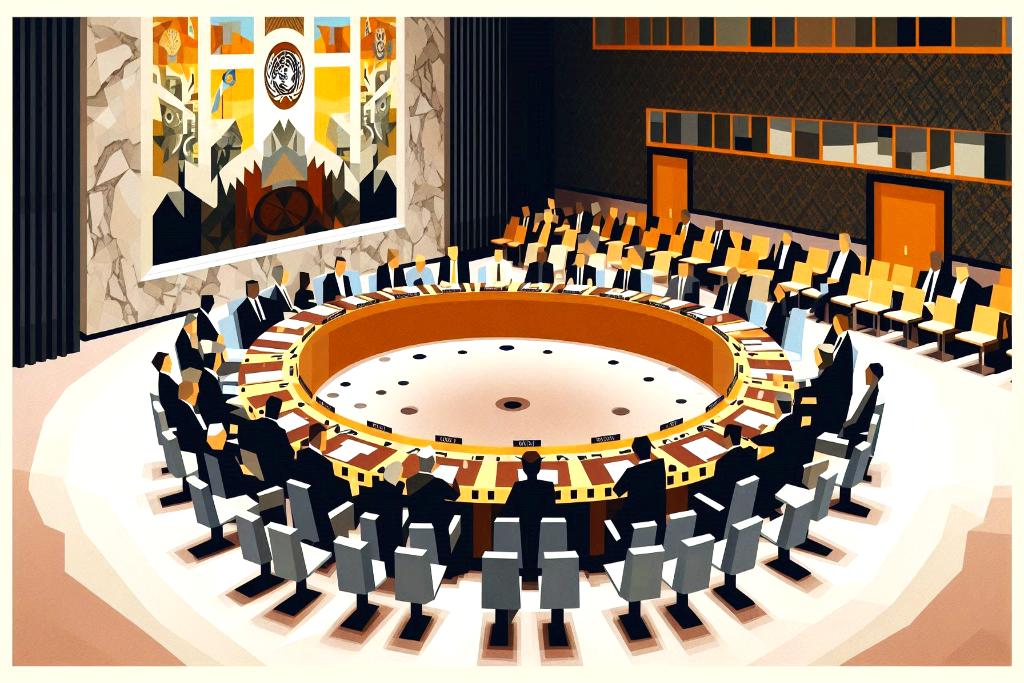Highlight 37/2024: The elusive quest for United Nations Security Council Reform: Is there still hope?
Haris Azman, 29 October 2024

« I firmly believe that the Council should be reformed: it cannot continue as it is. The world has changed, and the United Nations should change and adapt. » These words by former United Nations Secretary-General Kofi Annan in 2015 continue to resonate today, underscoring the urgent need for reform of the United Nations Security Council (UNSC).
Established after World War II to maintain global peace and security, the UNSC’s structure reflects a bygone era. The five permanent members (P5)— China, France, Russia, the United Kingdom, and the United States—wield veto power under Article 27 of the UN Charter. It states that the decisions of the Security Council shall be made by an affirmative vote of nine members “including the concurring votes of the permanent members”. Nevertheless, the privilege often stalls action in critical situations like the recent conflicts in Gaza, Lebanon, and Ukraine. Such gridlock exposes deep flaws in the UNSC’s governance and compromises its ability to fulfill its mandate.
Countries around the world, particularly those in the Global South, have long advocated for reform. The L69 Group—a coalition of developing nations—has been at the forefront of these efforts, calling for an expansion of the UNSC’s permanent membership to better reflect modern global realities. Brazil, Germany, India and Japan (G4 Group) also advocates for these changes, aligning with broader efforts to democratize decision-making within the UNSC by expanding representation and limiting the use of vetoes.
A significant step toward reform came in 2022, when the UN General Assembly passed Resolution A/77/L.52, requiring any use of the veto by a P5 member to trigger an immediate debate in the General Assembly. This move, while not abolishing the veto, forces P5 members to publicly justify their decisions, providing greater transparency and accountability—a step praised as progress toward democratic global governance.
A notable milestone in the ongoing push for reform was the adoption of the Pact for the Future by world leaders in September 2024. This comprehensive agreement represents one of the most progressive commitments to UNSC reform since the 1960s. The Pact emphasizes the need to enhance the effectiveness and representativeness of the UNSC, with a particular focus on addressing Africa’s historical under-representation.
Despite such reform commitments, ongoing crises reveal the urgency of these changes. The crisis in Gaza and the conflicts in Lebanon has caused widespread destruction, leaving thousands displaced and exacerbating a severe humanitarian crisis. Meanwhile, the conflict in Ukraine has triggered Europe’s largest refugee crisis since World War II. In all these instances, the UNSC’s failure to act decisively has deepened human suffering, restricted humanitarian access, and allowed breaches of international humanitarian law to persist.
Looking ahead, the success of global governance largely depends on the reform of the UNSC. To remain relevant, it must evolve to become more inclusive, representative, and responsive to the needs of all nations. While we can hope for reform, the ‘P3 powers’ (China, Russia, and the United States) are expected to continue vetoing decisions that may impinge their national interests, thus maintaining a major hurdle to meaningful change. Still, reforming the UNSC offers a vital opportunity not only to rectify historical imbalances but also to establish a more just, equitable, and effective international order.
Haris Azman, Highlight 37/2024 – The elusive quest for United Nations Security Council Reform: Is there still hope?, 29 October 2024, available at www.meig.ch
The views expressed in the MEIG Highlights are personal to the authors and neither reflect the positions of the MEIG Programme nor those of the University of Geneva.
